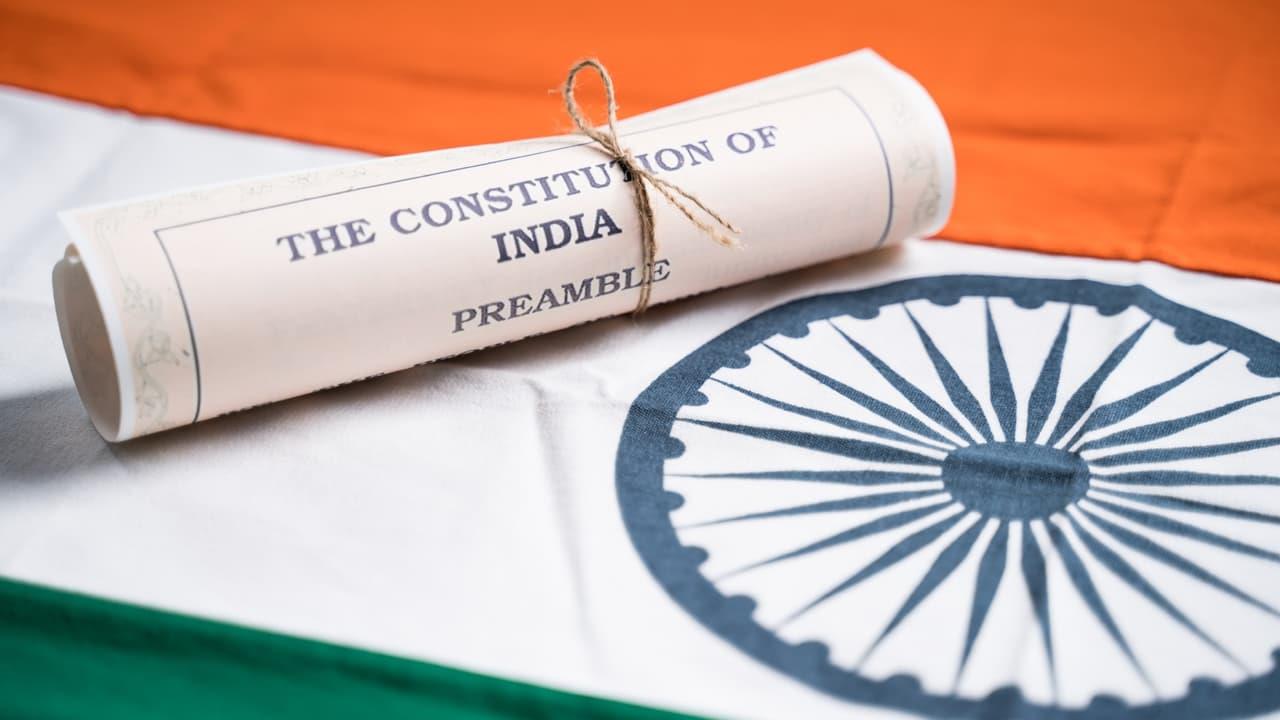
Constitution Day 2025: Key Fundamental Rights In The Indian Constitution Everyone Must Know
Constitutional Rights from Birth to Death:In Indian tradition, there are a total of 16 sanskars (rites of passage) from birth to the final stage of life. Interestingly, our Constitution also protects the rights received in these very 16 stages. This means from the moment a person is conceived until death, the Constitution looks after their dignity, security, and freedom at every turn. On the occasion of Constitution Day 2025, November 26, let's explore how these 16 sanskars are connected to 16 constitutional rights.
Garbhadhan: The Beginning of Life and Protection of its Rights
From the very first step of life, conception, the Constitution considers the protection of life to be paramount. The right to life is a fundamental right, and for this reason, the health and safety of both the mother and the unborn child are legally protected. It also conveys the message that the right to dignity and equality begins even before birth.
Punsavan: The Right to Dignity, Security, and Equality
Every person, whether male or female, has the constitutional right to live with dignity. This stage emphasizes that ensuring the safety, respect, and equal status of women during pregnancy is a key responsibility of the Constitution. Any form of discrimination is against the law.
Simantonnayan: Health Rights of Pregnant Women
It is not just a social responsibility but also a constitutional right for women to receive better health, care, and protection during pregnancy. From the government to health institutions, it is their duty to ensure that every pregnant woman receives necessary facilities.
Jatakarma: Rights Granted at Birth
As soon as a child is born, they get the right to life, health, and a secure future. The Constitution clearly states that no newborn can be discriminated against based on caste, religion, or economic status.
Namkaran: The Right to Identity and Citizenship
After birth, it is a child's basic right to receive a name, identity, and citizenship. An identity is not just on paper but a legally recognized right that provides a person with security and respect throughout their life.
Nishkraman: The Right to Movement and Freedom
Just as children gradually learn to step into the outside world, the Constitution gives every citizen the right to move freely, live in a place of their choice, and travel anywhere. This freedom is a crucial part of fundamental rights.
Annaprashan: Guarantee of Nutrition and Food
Like this sanskar related to a child's first intake of solid food, the Constitution ensures that every citizen gets food, nutrition, and a healthy life. Fighting hunger, malnutrition, and food scarcity is also the state's responsibility.
Chudakaran: Right to a Clean Environment and Healthy Life
Similar to this rite of a child's first haircut, the Constitution directs the provision of a clean, pollution-free, and healthy environment for citizens. Environmental protection is also a part of civil rights.
Karnavedh: The Fundamental Right to Education and Knowledge
This sanskar signals the beginning of education, and under Article 21(A), the Constitution also grants the right to free and compulsory education for children aged 6 to 14. The Constitution gives every child the fundamental right to education. This includes not just school learning but also the freedom to gain knowledge, skills, and learn.
Upanayan: Right to Equal Opportunity in Education
With the beginning of learning, it is also essential that there is no discrimination in education. The Constitution states that every class, every community, and every child should get equal opportunities to progress according to their potential.
Vedarambha: Right to Scientific Temper and Personality Development
In this sanskar, education in knowledge and science is imparted. Under Article 19(1)(a), the Constitution also gives the freedom of expression, the liberty to express thoughts freely, and to adopt a scientific outlook.
Samavartan: Responsibility Towards Family and Society
After completing education, the rite of playing one's role in society begins. The Constitution also says that along with rights, citizens have duties. Fulfilling responsibilities towards family, society, and the nation is the core spirit of the law.
Vivah: Right to Security, Equality, and Dignity
At this important juncture of life, the Constitution ensures that both parties in a marriage get equal rights. Any form of violence, dowry, discrimination, or insecurity is considered a crime under the law. Both freedom and security are essential in a marriage.
Vanaprastha: Justice and National Duty
With advancing age, a person fulfills their greater duties towards society and the nation. The Constitution not only gives citizens the right to seek justice but also inspires them to stand up for justice and contribute to the national interest.
Sanyas: Freedom of Thought, Belief, and Mental Liberty
Like the sanskar of Sanyas, the Constitution gives every citizen complete freedom to choose and express their thoughts, beliefs, religion, and convictions. Any person can express their views freely, provided they do not violate the law.
Antyeshti: The Right to Dignity Even After Death
It is also considered a part of constitutional rights that the last rites of life are performed with dignity. Protecting the final rites and respect of any deceased person falls within the scope of human rights.
Legal Disclaimer:
MENAFN provides the
information “as is” without warranty of any kind. We do not accept
any responsibility or liability for the accuracy, content, images,
videos, licenses, completeness, legality, or reliability of the information
contained in this article. If you have any complaints or copyright
issues related to this article, kindly contact the provider above.

















Comments
No comment